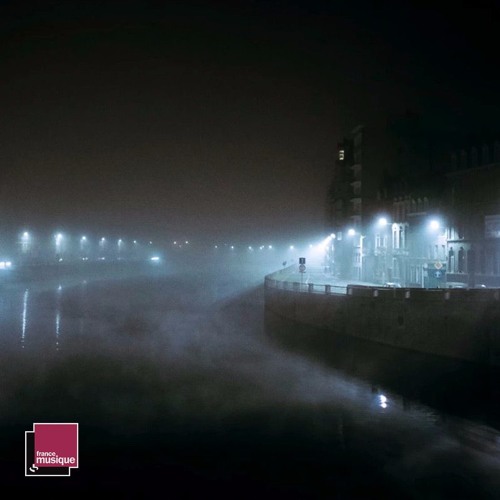パリ三日目の夜は、オペラ・バスチーユで、ローエングリーンを見てきました。新演出ということで楽しみにしていましたが、なんと一月はJonas Kaufmannが出ていたのです。
夜の19:00始まり、終りが23:25、途中、休憩が二回入ります。カーテンコールの途中で帰らねばならないシンデレラの気分でした。
客層は昨日の魔笛とはあきらかに違います。フランスにもワーグナー信者が多いのですね。舞台はミラノスカラ座のカウフマンバージョン。ローエングリーン役のぶStuart Skelton、太めで脚も短く、無骨な騎士。でも舞台の進行するにつれて、エルザを深く愛していることがわかります。純粋な騎士、崇高な騎士に見えてきました。
エルザ役のEdith Haller、最初は夢見がちな内気な少女、そして、騎士と結婚するときは堂々たる女王ぶりと、演技がうまいのです。もちろん、歌もすばらしい。この物語は、ローエングリーンよりもエルザの比重が大きいのです。
特筆すべきはオルトルート役のEvelyn Herlitzius、かいがいしい妻ぶりを見て、そして、夫をけしかける悪女ぶり、エルザを脅すのは怖いくらいうまいのです。この人にマクベス夫人をやらせてみたいと思いました。
ドイツの話しですし、ナチスの影が見えて、欧州での演出はやはりそうなるのでしょうね。黒と白のコスチューム、色で人の心を表すことができるのを知りました。最近の流行なのでしょうね。
演奏も抜群によく、昨日と同じオーケストラなのだろうかと思ったりして。幕が終わりごととにカーテンコールがあります。本当にすばらしい。四年前もそう思いしましたが、オペラの楽しさを実感しています。
なぜ、エルザが騎士の出身や名前を聞きたがったのが、不思議でしたが、周りからの外圧、素性もわからないものに王国を任せるのかという無言の非難、そして、オルトルートの脅し。エルザは子どものころから脅かされて育っているのです。
騎士が出自と名前を名乗るシーンは、心が清められます。去っていくことに決めた男の最後の真実。歌舞伎の中にもありますね。
終わるとすぐにタクシーを拾いました。女性の黒人のドライバーで、ホテルのアドレスをみて、すぐに発車。昨日とは違うセーヌ川沿いの道で戻ってきました。無事に帰れてうれしかったので、チップもよぶんに渡しました。
この時間設定23時半終了で、歩いて帰れるバスチーユ付近のホテルに泊まるしかないのでしょうか。国立劇場で、職員も大変ですね。だから、幕ごとにカーテンコールがあるのかもしれない、と思いました。 また、来ようと決めました。
、
Lohengrin
Opera in three acts (1850)
- Music
- Richard Wagner
- Libretto
- Richard Wagner
- In German
- Conductor
- Philippe Jordan
- Director
- Claus Guth
- Heinrich der Vogler
- René Pape
- Lohengrin
- Jonas Kaufmann
- Elsa von Brabant
- Martina Serafin
- Friedrich von Telramund
- Wolfgang Koch
- Ortrud
- Evelyn Herlitzius
- Der Heerrufer des Königs
- Egils Silins
- Vier Brabantische Edle
- Hyun-Jong Roh
Cyrille Lovighi
Laurent Laberdesque
Julien Joguet - Vier Edelknaben
- Irina Kopylova
Corinne Talibart
Laetitia Jeanson
Lilla Farkas
- Set design
- Christian Schmidt
- Costume design
- Christian Schmidt
- Lighting design
- Olaf Winter
- Choreography
- Volker Michl
- Dramaturgy
- Ronny Dietrich
- Chorus master
- José Luis Basso
Orchestre et Choeurs de l’Opéra national de Paris
Production du Teatro alla Scala, Silan
French and English surtitles
Lohengrin appears in a “silvery‑blue” light aboard a boat pulled by a swan (Thomas Mann). He has just saved Elsa, accused of murdering her brother, and has made her promise to never ask him his name. Written by Wagner in great solitude, Lohengrin is first and foremost an immense aesthetic and political manifesto questioning the place of genius in society and laying the groundwork for musical drama. The work, conducted by Liszt at its premiere in Weimar in 1850, marked a turning point in Wagner’s life. It had a profound impact on Ludwig II of Bavaria who became his patron and friend, supporting him in all his future enterprises: “The defiled gods will have their revenge and come and live with us on the peaks, breathing the air of heaven”, Ludwig wrote to him in 1868 from Neuschwanstein Castle (“new swan rock”) which he had just had built. Directed by Claus Guth, who reveals all the fragility of the knight with whom Wagner identified, the production brings together Jonas Kaufmann, Martina Serafin and René Pape under the baton of Philippe Jordan.

